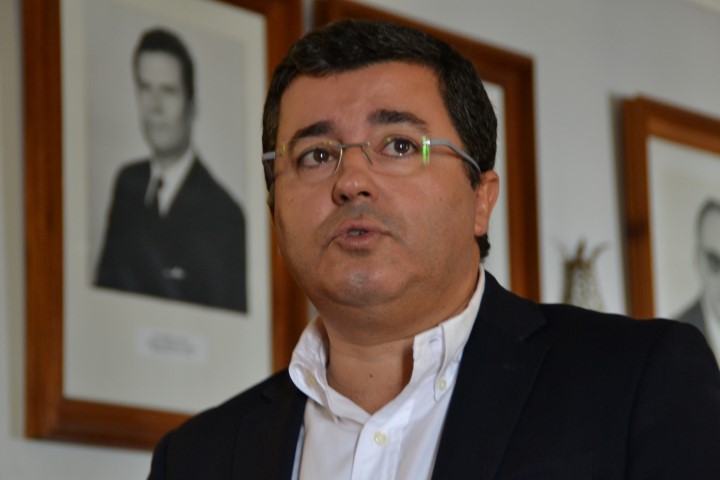 Mobility in the Algarve will give online the first step towards greater sustainability. A virtual map of the region's transport network, with timetables and prices, which can be integrated into world-class platforms, such as Google Maps, is already being developed and will be available in 2017.
Mobility in the Algarve will give online the first step towards greater sustainability. A virtual map of the region's transport network, with timetables and prices, which can be integrated into world-class platforms, such as Google Maps, is already being developed and will be available in 2017.
“We are developing technological platforms that will allow the integration of all passenger transport networks – by road, rail, air and river – so that citizens can have a single view of the offer and of the existing mobility network. They can also, through open platforms such as Google Maps, plan their journeys», summarized to journalists Vasco Pinheiro, project manager of the company FousBC, which is developing this technology
There is still no date for the release of the new tool since its development will take «a few months», but it is certain that it will be working next year.
The representative of this company, one of the partners of the VAMUS sustainable mobility project, led by AMAL – Algarve Intermunicipal Community, spoke on the sidelines of the session «Vamus characterize and diagnose», which took place this Wednesday in Albufeira and served to report on the survey that was carried out on mobility in the region.
The possibility of advance planning of trips provided by the new tool may be particularly useful for those visiting the region, since in addition to the network itself, timetables will also be made available, «whenever the operators make them available».
In some cases, tickets can even be purchased online. "We are already in talks with some municipal urban transport operators, in order to show that it is possible to dematerialize the ticketing process and that it makes no sense for people to be in queues waiting to buy a ticket," added Vasco Pinheiro.
Another potential opened up by the platform to be created will be the possibility of following, in real time, the location of the means of transport that one intends to take. “It doesn't make sense for people to be at the stops, when we can know the position of the buses in real time. These are technologically simple things that we can offer society», he illustrated.
As in the case of timetables, the collaboration of operators is also necessary here, so that they «have an open data policy in relation to this information.
“As revealed here today, the new concession contracts [road transport] are being renewed. In our opinion, these contracts should provide for an open data policy. We know where the Uber cars are and we don't know where the buses are. It doesn't make sense!», believes Vasco Pinheiro.

Moments before, during the session «Vamus characterize and diagnose», it was already noticed that mobility in the Algarve is not satisfactory. In fact, the conclusions of the diagnosis made will hardly scare off anyone living in the region: the people of the Algarve travel, above all, on their own transport, intermodality is very deficient, even if it does not exist at various levels, and there is a strong gap in the offer of public transport for the tourists visiting the region.
“This is a reading of things as they are, of common sense and also of mayors. We all know that mobility in the Algarve is very much based on individual transport and that things fail when it is necessary to use collective transport, especially for inter-municipal travels», according to AMAL president Jorge Botelho.
It was already with this idea in mind that the entity that brings together the 16 municipalities in the Algarve decided to take on the competence of managing authority of the regional transport system. VAMUS is the most visible phase of this decision and contemplates the creation of a Regional Plan for Sustainable Mobility (PAMUS).
The platform being developed by Focus BC will already result from this project. But there is much more to be done, as the characterization of the mobility of the region that has just been presented indicates.
«We are now going to discuss and know the critical points, to understand where we started. But it should be noted that, after so many years of democratic rule, AMAL has assumed the responsibility to contribute to global mobility in the Algarve, because we believe it is a way to promote employability, sustainability and that this economy of Tourism and quality life of those who live here can be greatly improved», said Jorge Botelho.
In the pipeline is the creation of unique titles for different means of transport, operated by different entities, and the coordination of schedules.


















Comments